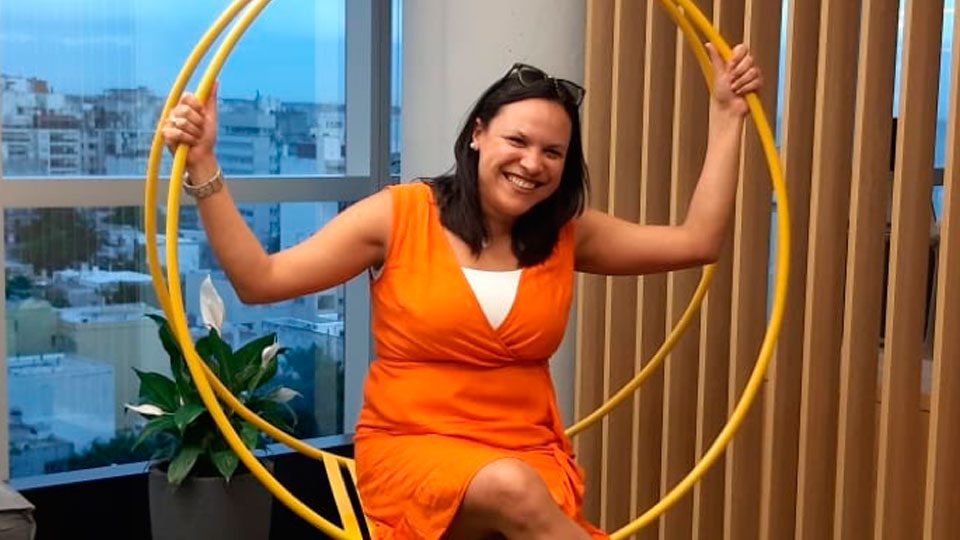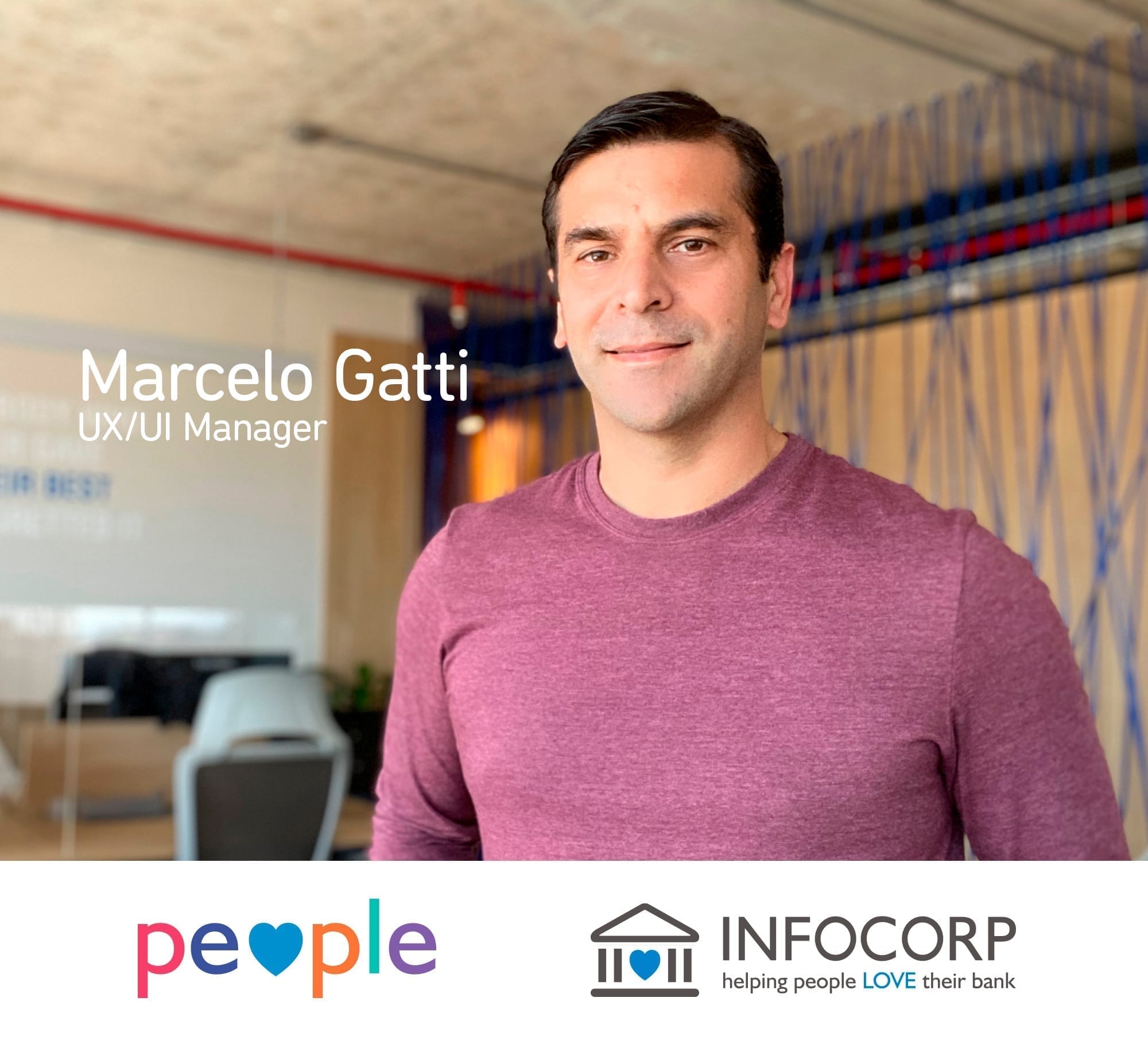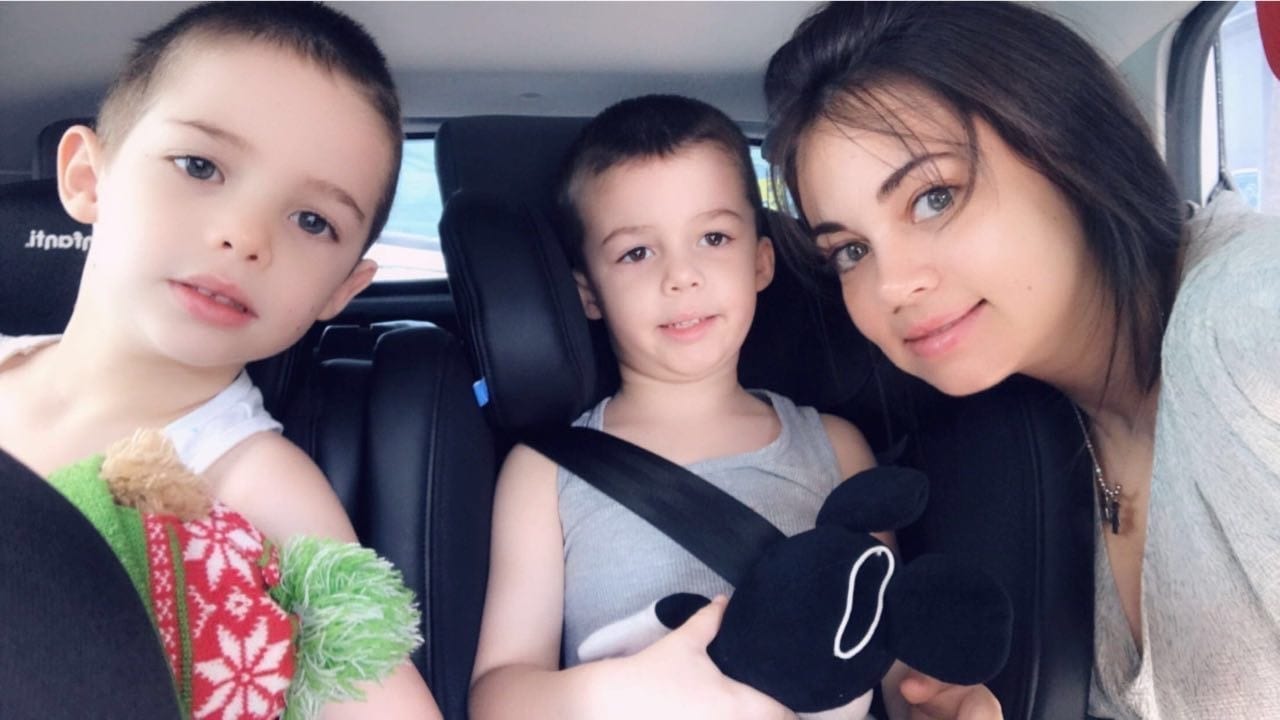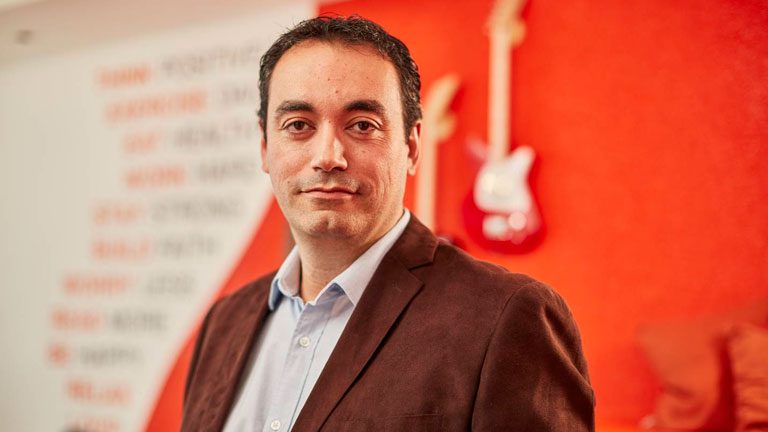
Mariamna married a Uruguayan man almost 20 years ago, and she never imagined she would end up raising her children in this country, or that she would end up loving “asado” and Carnival. She decided to come in winter, thinking that if she made it through a difficult weather, everything else would be easier. And she wasn’t wrong. She has been working for Infocorp since 2016; today she’s a Project Head and her main advice for someone who wants to migrate to Uruguay is: “Don’t look for a job in December.”
Q: Hi Mariamna, tell us how and when you arrived in Uruguay.
M: I arrived on July 14, 2015. My husband is Uruguayan, but he had been living in Venezuela for 40 years. He left during the dictatorship and then returned for a visit, but he was there all this time. His older daughter is Venezuelan too. I had never come to Uruguay. When the situation in Venezuela got complicated, our children were very young, so we started thinking about him coming for a while to see how it went. Then we decided that we would come visit Uruguay and stay here if we liked it.
I said, “Let’s go in winter. If I make it through the winter, I think I can stay.” And truth is I wasn’t wrong. We initially came for 3 months, and we started thinking about staying. I think the decision had already been made, because the situation in Venezuela was complicated and getting worse by the minute.
Q: What did you know about Uruguay before coming?
M: I knew a bit. I knew about pascualina and a bit about its people, but still everything was unknown for me, to be honest. I had some memories of my husband saying, “When we get off the plane, it will be horribly cold, you won’t be able to make it stop,” and I said, “If I can handle that cold, then I can handle anything else.” But I think he didn’t even have the memories from Uruguay, because when he saw the beach, the boulevard, he said, “Why did I ever leave?” At first, we had second thoughts about coming here, besides it wasn’t just the two of us, we would also come with our two children. I have a little 8-year old boy, and the girl is 11. We came with our fears plus theirs, because it is a full uprooting, and fighting against what you’re feeling and what the children are feeling is a challenge.
Q: Tell us about your job at Infocorp.
M: I’m a Project Head at Infocorp. And I truly think that my beginning at Infocorp matches the moment I feel everything started to go better in my life in Uruguay. For me, it had been very difficult, because I had left my job in Venezuela and had to start from scratch. Even though the unemployment rate is zero in Technology, or it’s even negative, finding a job in the area I liked was difficult. I don’t really like programming, but being an analyst or a project head, which is what I had been doing in Venezuela. I’m happy now. I really like the environment, the people I work with, I made a lot of friends. I really like how friendship is really valued here, and that is encouraged in the company as well.
Q: Are there any stories about your job at Infocorp? Anything you remember as being special or funny?
M: I have many, but I remember when I first started at Infocorp and the whole interview was an anecdote for me. I was just about to go back because I couldn’t find a job, or didn’t find a job that I felt comfortable in, when I got a call from Infocorp. On the day of the interview, the weather was awful, it was pouring and I went to take the aptitude tests, and then one of Infocorp’s bosses comes and tells me: “Mariamna, now that we have you here, we’ll have another interview.” And then one, two, three, like four people came in, and it was still raining outside, and I thought I was going to leave really fast, but no, people kept coming in, until they told me: “Well, since it’s raining so much, we don’t want you to leave just to come back again, so we want to make you an offer right away.” And that’s when I took the job and here I am, four years later.
Q: Are there any interesting stories about your life in Uruguay?
M: I have many, for example, I already have my citizenship. But when I started three years ago with the arrangements, my brother-in-law would tease me and tell me that if I didn’t drink mate, they wouldn’t grant me the citizenship, so I bought my own mate and made an effort, but I really don’t like it that much. I prefer “dulce de leche”. It’s really interesting, because it’s a social thing. So, I always say “but if I have coffee or tea, isn’t it the same?” But now I know better!
Q: What would you tell or recommend a foreigner who’s thinking about living in Uruguay?
M: I’d recommend them to research the country on social media, I’d recommend them not to look for a job in summer. It’s really hard, because everything stops from December to March. That is an important piece of information I would have liked to know before coming. I would also tell them that, if they come in winter, they shouldn’t bring coats, less so if they come from the Caribbean. Caribbean people cover up and we think we are really covered, but then you come here and find out that none of the coats you brought will be enough. Maybe I would recommend finding out about renting a home. Many say that Uruguay is an expensive country, but I think that the quality of life is worth it.
Q: And what do you miss the most from Venezuela?
M: My friends, my family. Because I don’t miss food anymore, there are many places where you can find Venezuelan food now. We have even brought Venezuelan food to Infocorp. They love arepas!
Q: A question that’s a little different: If you had to choose between traveling to the past or the future, where would you go and why?
M: I’ll tell you something that’s a bit emotional, but it was the first thing that came to my mind. I’d go back a couple of years to kiss my grandma, because she passed away last year, close to this date, and she’s very present in my mind now. And in the future, I’d travel to a time when the lockdown is over, so we can meet with our loved ones and hug them.
Ping Pong
A Uruguayan food?
El asado
A Uruguayan soccer player?
Cavani
A place in Uruguay?
Montevideo, specifically the Malvín Boulevard
Carnaval, yes or no?
Yes, I love it, I enjoy it a lot.
A Uruguayan tradition you have adopted?
Getting up or going to bed later.
A Uruguayan song or artist?
Eduardo Mateo
A month or date in Uruguay?
I like November, because it’s my daughter’s birthday and it feels like spring.






